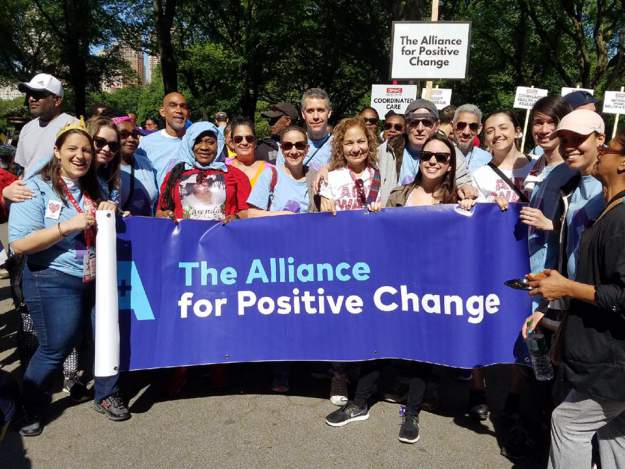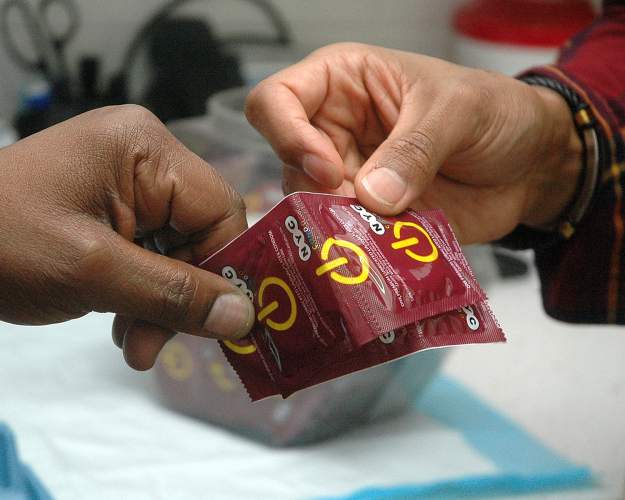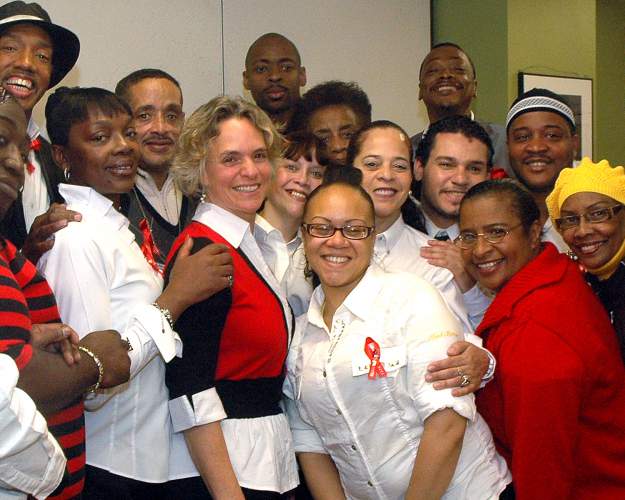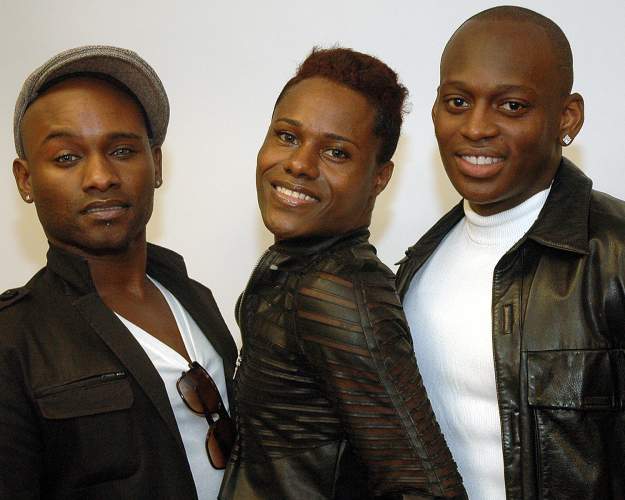Many of us forget that there are still a ton of fantastic organizations out there who are going above and beyond the call to make sure that HIV/AIDS patients are still taken care of in 2018. And not just on the surface level: for their food, housing and so much more. Even though we are living in a much different world today than when AIDS was profusely prevalent in the late 80's and early 90's, these problems still occur for people who are dealing with the chronic disease and can use all the help they can.
The Alliance for Positive Change is one of those organizations that deserves some major props for how they help not only people with HIV/AIDS but also ones who suffer from addiction as well. Based in NYC, their goal is to help ensure that people who are dealing with one or both issues get the treatment they deserve so they can live a happy and healthy life moving forward.
Communications manager Mitch Case sat down with us at Instinct Magazine to give some more detail on what it is that they do, how much stigma and education still plays a part in the HIV/AIDS movement, and their incredible campaign they have going on for month of February. Take a look.
Tell us more about The Alliance for Positive Change and what it is that you do?
The Alliance for Positive Change transforms the lives of New Yorkers living with HIV/AIDS and other chronic illnesses. We help people access medical care, manage and overcome addiction, escape homelessness, get back to work, and find community. By addressing the underlying issues that contribute to poor health, the Alliance’s individualized, full-service approach and harm reduction philosophy help New Yorkers lead healthier, more self-sufficient lives. At the Alliance, we believe everyone deserves the chance to feel better, live better, and do better.
Do you find that people with HIV still struggle for necessary things like medication, housing, and more?
Many of those affect by HIV/AIDS and other chronic illnesses are struggling with socio-economic issues such as lack of housing, food, and health insurance. For instance, 50% of our participants are homeless or in need of housing assistance. Without these basic needs being met, it is difficult for people to focus on and manage their health conditions. At the Alliance, our Care Management team is able to connect participants to services and programs to help meet these needs so they can then focus on their health and feeling better.
What are the biggest stigmas you find with people who are dealing with HIV, addiction or both?
There are a number of stigmas surrounding HIV and AIDS. Some people believe that only certain groups or types of people can get HIV, or people may refuse casual contact with someone living with HIV, leaving that person to feel socially isolated and cutoff from the community because of their status.
As for substance use, stigma still persists when people make moral judgments about individuals who are living with chemical dependency. At the Alliance, we take a judgement free approach and offer a number of services that reduce the harm of substance use including syringe and needle exchange and overdose prevention training.
Do you find that a large portion of the LGBTQIA community is not educated when it comes to HIV?
It’s not always a matter of a lack of education, but often the result of stigma – and sometimes even constant inundation of information, to the point where it becomes white noise. It’s important to ensure messages about HIV prevention and treatment that resonate with the most at-risk populations and reach the groups that are not seeing as steady a decline in new HIV cases as we’d like to see on the path to ending the epidemic.
What can The Alliance for Positive Change do in order to minimize that stigma?
The Alliance works hard to educate the communities most at-risk of HIV – including women of color, MSMs (men who have sex with men), and transwomen. Through our Peer Program, we employ more than 150 Peer Educators, who complete an eight-week training course to become experts on HIV and chronic illness. These Peers are representative of the at-risk communities we serve. Upon graduation, they go out and educate their family, friends, and neighbors, so in turn they are having a much wider impact across New York City. In fact, our Peers reach more than 14,000 New Yorkers each year.
What is the biggest progress that has been made since starting with The Alliance for Positive Change?
Since I started at the Alliance in early-2016, there has been continued progress in the fight to end the HIV/AIDS epidemic in New York City. According to data from the City Health Department, new HIV diagnoses are down, HIV diagnoses among men who have sex with men are at historic lows, viral suppression is up, and more New Yorkers are receiving HIV care.
Our organization has been proud to partner with a number of City and State agencies, and our Governor and Mayor, who both are committed to ending this epidemic. It has been encouraging during this time to see these collective efforts breaking down stigma, connecting more people to care, and ensuring that more people are creating positive change and living longer, healthier lives.
Ultimately, what are your biggest hopes as 2018 continues on, not only for your organization but for people living with HIV as a whole?
Our hope is that New York City and State will continue the progress that is being made toward ending the epidemic. Late last year, we learned that these efforts put a deeper dent into new HIV cases in our region. Our hope as an organization is that we will continue to provide the necessary services and support that people need to feel better, live better, and do better. The Alliance provides a nonjudgmental place for people to find community, and to find ways to help others.
For one, this is why in February we are launching our #PositiveLove campaign, which aims to showcase how our staff and peers are helping others.This is a social media-driven campaign showcasing how the Alliance is making a difference in New Yorkers’ lives through love, friendship, compassion, volunteering, and in many other ways.
The “Share Your #PositiveLove” campaign is featured on Alliance’s social media platforms: Facebook: /thealliancenyc Twitter: @thealliance_nyc Instagram: @thealliance_nyc
The campaign features images of Alliance staff and Peers who have been on the frontlines of providing support for New Yorkers with HIV/AIDS, chronic health illnesses, and substance issues. For 27 years, the Alliance has helped people get access to medical care, manage and overcome substance use, escape homelessness, get back to work and find community,
Many of those featured in the campaign have worked at Alliance for years, including New Yorkers who first came to the organization seeking assistance and then sought training to be-comes Peers, credible messengers having a wider impact across New York City.
For more information, click here.




